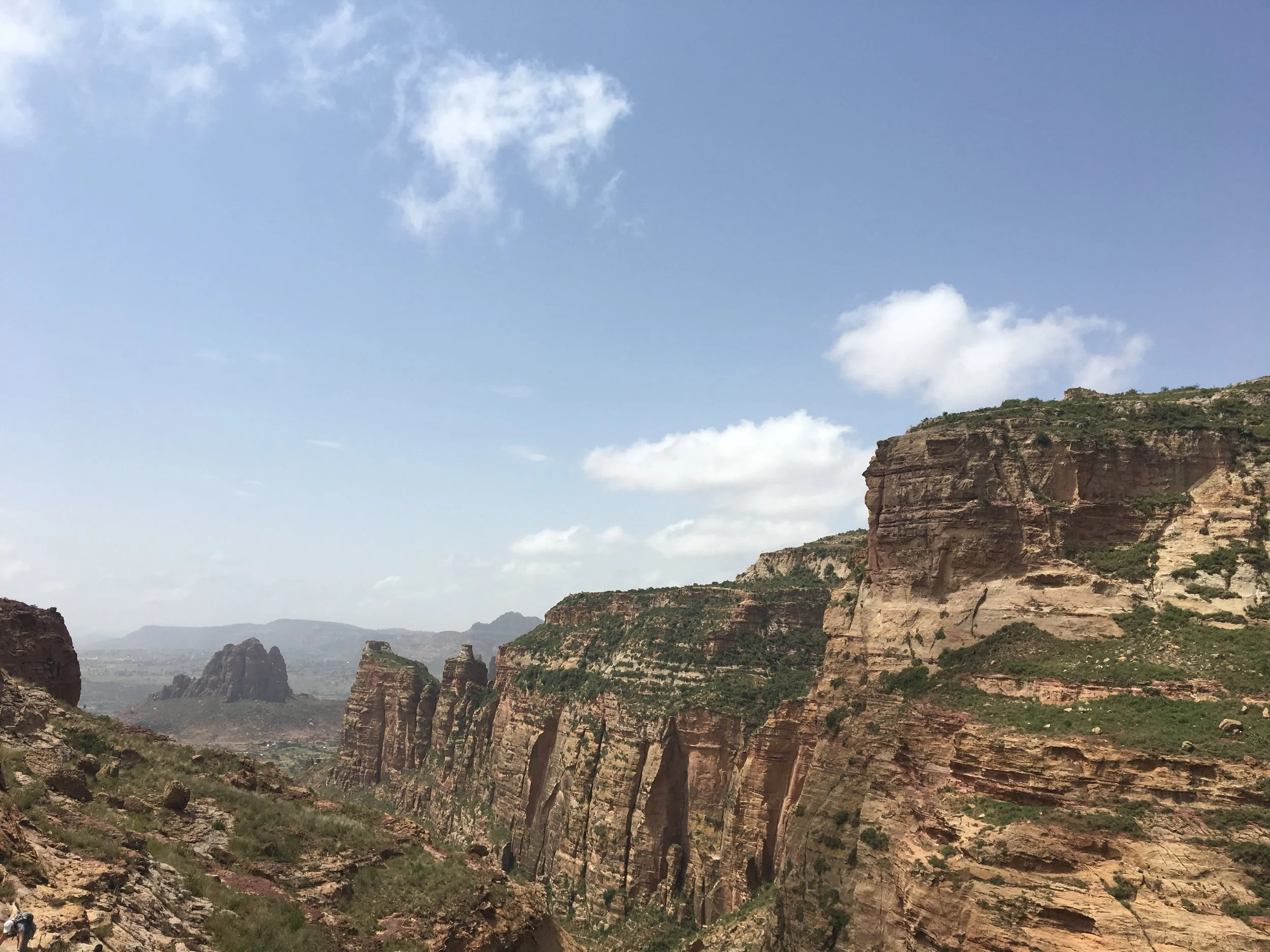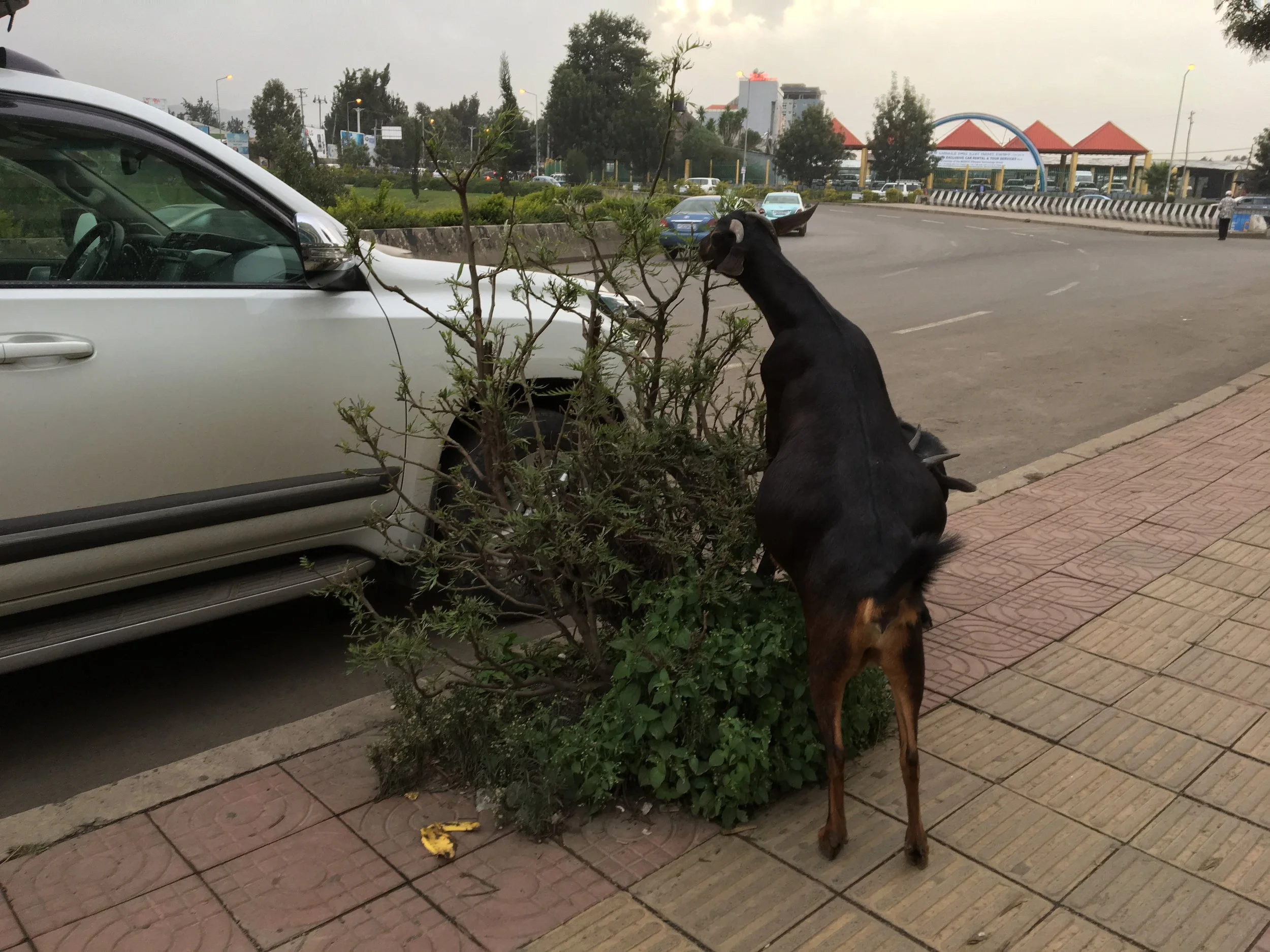A Death and a Birth
Mimi asked if I’d like to go with her to her grandfather’s funeral. I’ve learned when an opportunity like this presents itself you say yes. Mimi gave me a black scarf to wrap around my head, a mourning custom. We piled into a fleet of minibuses, lorries, and motorcycles and set off on a long dirt road. As we drove further away from the main road our surroundings became more remote. Fields of cut down teff were reduced to dust which rose in the wind like mist. Tikil bet(s) the traditional Ethiopian round house made of mud and a thatched roof dotted the landscape. We came to a bridge, the middle section was a good foot lower than the rest, and one of the minibuses in front of us was stuck. Our minibus driver quickly turned around and drove off the road—many of the woman in the bus protested and said they’d get out and walk. I had faith in the driver and we took a detour through a barren river to get around the bridge. We made it back onto the road and picked up the women who walked (fortunately the other minibuses managed to get through). As we drove further we came to another bridge where a lorrie had gone off the road and turned on its side—everyone sucked their teeth in dismay. At last we arrived and got out of the minibuses and walked the rest of the way, we were joined by mourners from the village as everyone walked to the compound, singing and praying. As we processed people came from all directions, I was amazed by what seemed so spontaneous a choreographed procession. There must have been several hundred people. Upon reaching the home—a compound of tikil bet(s)— women began keeling to pay their respects. A man stood in black skinny jeans and a white gabi a cotton cloth men wear. Then the traditional celebration began—a drum was beat gently in a soothing rhythm. Men and women gathered, marching around the drummer, hands in the air open to the sky. Men carried staffs and spears. A few men draped in colorful fabric embroidered with lions carried kalashnikovs and fired them intermittently into the air. I sat between the roots of a large acacia tree, surrounded by women and watched the ceremony, mesmerized.
When it was over we got back into the minibuses and drove to the church for the burial. Many of the mourners walked across the deserted teff fields, a few of the more distinguished community members cloaked in marigold capes. I was tightly packed between several women, one held my hand, the other wrapped her arm around me and place her hand over my heart. “Ayzosh”, she said. The emotions surrounding me made my eyes well up. Everyone gathered in the church grounds, the church a round building painted pink and blue over mud with a tin roof. The men were separated from the women. A circle of priests incanted. A new, black Toyota pick-up truck drove into the churchyard bearing a coffin wrapped in bright cloth. A donkey brought a cart loaded with rocks, presumably for the burial. The truck seemed incongruous against a setting that I’m sure has remained the same for the last century. A priest gave a brief sermon and the burial took place. Again, we got back into the minibuses, and this time I assumed we would be leaving but then we stopped on the road near a giant acacia tree and everyone got out and was served lunch. A picnic, Ethiopian style. I had been wondering how everyone was going to be fed, but injera had been prepared beforehand with thick wot spread on each piece and neatly folded. As close as you can get to a sandwich out here.
Finally we got back into the minibuses and drove home. Back at our compound guests were served buna and chatted quietly, as others came by to pay their respects to the family.
Throughout the day I had wondered where Emoye, Mimi’s sister had been, but assumed as she was heavily pregnant she probably didn’t want to make the trek. In fact, she had given birth the night before, so I was taken to her house to give congratulations and meet the tiny, beautiful baby.
Life. A complete cycle lived out within a day. I’m not sure I’ll experience anything on this scale again. Bewildering and beautiful.


